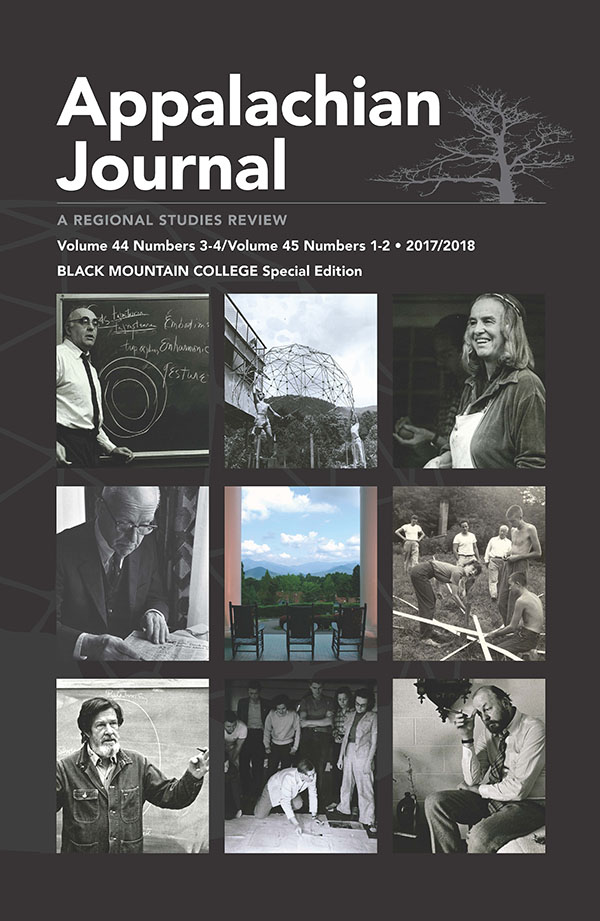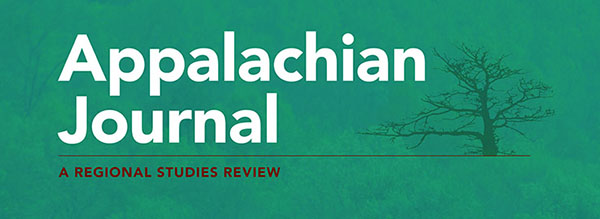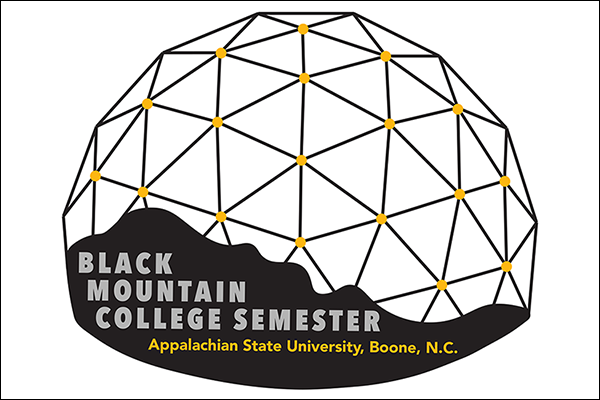BOONE, N.C. — Appalachian Journal: A Regional Studies Review, an interdisciplinary, peer-reviewed quarterly journal housed at Appalachian State University, announces the publication of its Black Mountain College (BMC) Special Edition, coinciding with Black Mountain College Semester at Appalachian. With featured sections on memoirs, poetics and practice, writers and poets, art, music, democracy and design, this special issue is the largest volume in the journal’s 45-year history, with more than 450 pages and 62 contributors.
Guest editor Joseph Bathanti, professor of creative writing at Appalachian and North Carolina poet laureate emeritus, has been teaching an undergraduate course on Black Mountain College since 2011. His expertise and acquaintance with BMC alumni, scholars, museum directors, archivists and others knowledgeable about BMC’s fascinating history (1933–1957) have led to the range and diversity of this special issue of Appalachian Journal.
“Getting to work so closely for so many months with Dr. Sandy Ballard, the long-time editor-in-chief of Appalachian Journal, was a remarkable experience. A university journal in North Carolina, perhaps anywhere in the country and abroad, has not attempted an issue of this scope,” Bathanti said.
“Since 1995, a trove of new cutting-edge scholarship on BMC has appeared — in truth, exploded — and thus, the appearance of this special issue of Appalachian Journal is not only timely, but crucial. I truly believe this issue will remain a cherished and invaluable volume of lasting historical, scholarly and archival significance on Black Mountain College.”
In this issue, poets Robert Duncan and Charles Olson share the spotlight with M.C. Richards, Jane Mayhall and Hilda Morley. BMC founder John Andrew Rice and faculty members Joseph Albers, John Cage, Buckminster Fuller and Merce Cunningham receive attention alongside former students Fielding Dawson, Michael Rumaker, Basil King, Martha King, Patsy Lynch, Ray Johnson and Frank Hursh.
The journal includes articles on Alma Stone Williams, an African-American student of music who attended BMC in 1944, and who wrote letters collected in this edition, participated in an interview with her son Percy Williams and inspired her son Russell Williams to write about her. Articles on “place” — a common theme in discussions about BMC around the connectedness of the geography and time in which the school was positioned — also explore connections between Black Mountain College and the Penland School of Crafts, the John C. Campbell Folk School, the BMC Museum and Arts Center, the BMC farm and reunion gatherings. Additionally, the issue offers an archival account of visiting the BMC by the grandfather of Appalachian Studies, Cratis D. Williams.
Contributors from across the U.S. appearing in the BMC Special Edition:
- Founding editor of North Carolina Literary Review, Alex Albright.
- Whitney Jones, Black Mountain College Festival organizer at St. Andrews College, and his students Tom Patterson and Charles R. McNeill.
- Poets Julia Connor, Anne Waldman, Vincent Katz, Paul Carroll, Burt Kimmelman, Thomas Meyer and Keith Flynn.
- Documentary filmmaker Cathryn Davis Zommer.
- Interviewers Kelsey Wagner and William Schumann, who talked with Jan Davidson.
- Archivists Cary Hedlund and Heather South, along with artist Alice Sebrell and environmentalist David Silver.
- Scholars on published and unpublished BMC manuscripts, photographs and stories include Joseph Bathanti, Brian Butler, Charmaine Cadeau, Katherine Chaddock, John Corkran, Mark Davenport, Jeff Davis, Eva Díaz, Craig Fischer, Joshua Gardner, Mary Emma Harris, Margret Kentgens-Craig, Irwin Kremen, Sebastian Matthews, Leon Lewis, Ray Miller, Savannah Paige Murray, Suzanne Penuel, Alessandro Porco, Terry Smith, Julie J. Thompson and Jessica Wood.
This special edition of Appalachian Journal is published in collaboration with Appalachian’s Black Mountain College Semester, coordinated by the university’s Center for Appalachian Studies and the College of Arts and Sciences, with the support of Belk Library and Information Commons. The journal, which is dedicated to Mary Emma Harris, director of the Black Mountain College Project, is available at Appalachian’s University Bookstore or from the Appalachian Journal office.
To order a copy of the journal, or for more information, visit https://appjournal.appstate.edu.
Appalachian State University
Spring semester 2018
About the Center for Appalachian Studies
The Center for Appalachian Studies promotes public programs, community collaboration, civic engagement and scholarship on the Appalachian region. The center is committed to building healthy communities and deepening knowledge of Appalachia’s past, present and future through community-based research and engagement. Learn more at https://appcenter.appstate.edu.
About the College of Arts and Sciences
The College of Arts and Sciences (CAS) at Appalachian State University is home to 17 academic departments, two centers and one residential college. These units span the humanities and the social, mathematical and natural sciences. CAS aims to develop a distinctive identity built upon our university's strengths, traditions and locations. The college’s values lie not only in service to the university and local community, but through inspiring, training, educating and sustaining the development of its students as global citizens. More than 6,800 student majors are enrolled in the college. As the college is also largely responsible for implementing App State’s general education curriculum, it is heavily involved in the education of all students at the university, including those pursuing majors in other colleges. Learn more at https://cas.appstate.edu.
About Appalachian State University
As a premier public institution, Appalachian State University prepares students to lead purposeful lives. App State is one of 17 campuses in the University of North Carolina System, with a national reputation for innovative teaching and opening access to a high-quality, cost-effective education. The university enrolls more than 21,000 students, has a low student-to-faculty ratio and offers more than 150 undergraduate and 80 graduate majors at its Boone and Hickory campuses and through App State Online. Learn more at https://www.appstate.edu.
What do you think?
Share your feedback on this story.














